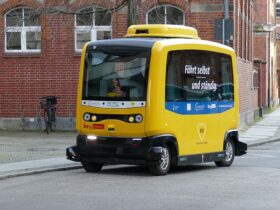It affects millions worldwide and touches many facets of a person’s quality of life. On the other hand, AI, in relation to audiology or that branch of medicine focused on hearing and balance, is in constant revolutionary change. Indeed, AI opens completely new perspectives for improving the health of hearing by means of advanced diagnostics and personalised treatments with better hearing aids. This article highlights a few works of AI in the making of development in audiology, its advantages, and the challenges faced by them.
Types of Hearing Loss
Hearing loss can be divided into several types that include:
- Sensorineural Hearing Loss: It is a type of hearing loss that usually occurs due to damage in the inner ear or in the auditory nerve. It is usually permanent and may be caused by ageing, noise exposure, or genetics.
Conductive hearing loss: It may be a problem of your middle or outer ear; few incidences include infection in the ear or growth of wax inside the ear; this is mostly treated with medications or surgery.
Mixed hearing loss: Damage to a combination of sensorineural and conductive parts of the auditory system.
The losses could then only be effectively managed through proper diagnosis and treatment. AI enhances these two aspects in quite a number of ways.


How AI is Revolutionising Hearing Health
AI has begun changing the audiological landscape through offering new tools and methods of treatment. Here’s how:
1. Bettering Diagnostics
Diagnosis is the centre of any effective treatment. AI aids in diagnosing hearing loss by means of:
AI-driven audiometry: The algorithms themselves can execute the hearing tests and interpret their results for speed and accuracy. These tests detect very minute changes in hearing that might be impossible to realise using conventional techniques. Pattern recognition: AI will look for patterns within patients’ data that could predict the type and degree of the hearing loss; thus, diagnosis in complicated cases and treatment planning become easy accordingly.
AI will, therefore, be of immense help in better diagnostics, accuracy, and speed. Hence, managing the problem of hearing loss so much more effectively.
2. Smart Hearing Aids
Conventionally, hearing aids have been limited to manual adjustments and very basic functionalities. The integration of AI enhances these in hearing aids by:
- Adaptive Sound Processing: With the help of AI, it lets hearing aids automatically switch to settings depending on one’s surroundings. For example, if the environment is noisy, it amplifies speech and reduces the background noise altogether.
- Personal Settings: By researching users’ preferences and hearing pattern analysis with AI, personalisation of hearing aid settings became possible. In fact, the ability to tailor hearing aids with regard to multiple needs and different preferences is key to their successful use.
These, in turn, make the hearing aids more effective and easier to use.
3. Optimising Hearing Rehabilitation
This in turn helps them deal with their losses, which is the big role that could be played by hearing rehabilitation. Contributions of AI include, but are not limited to:
- Personalised Hearing Rehabilitation Programs: It designs personalised hearing rehabilitation programs based on one’s needs and progress. This may also include personalised exercises and auditory training programs.
- Speech and Language Therapy: Most of the exercises related to speech and language therapy are also possible with the help of AI-powered applications. They would offer exercises to regain communication skills and even provide feedback.
Artificial intelligence-driven rehabilitation programs promise better and customised recovery.

4. Predicting Hearing Loss Progression
This AI-based model can give the likely course the progression of hearing loss would follow in the following way:
- Long-term observation: Study of history and pattern gives the outlook about the shift in degree of hearing through research done by the model, hence allowing proper strategy and treatment planning well in advance.
- Risk identification: AI observes the risk factors and gives precaution about the prospect of hearing degradation in advance.
Predictive attributes further enable proactive control and timely management.
5. Advancing Research and Development
AI accelerates the process of research and development in audiology along the following lines:
Data Analysis: The large volumes of data emanating from research are analysed by AI to draw out new patterns and insights. This leads to quicker identification of new treatments and technologies. Simulation and Testing: Simulations through AI test new designs of hearing aids and their algorithms before actually being used. This refines technologies and enhances their effectiveness. For these reasons mentioned, these rapid changes come about in hearing health. Factors contributing to these changes are AI-driven research.
Case Studies: AI at Work There are enough real-life examples to show the effects of AI in the world of audiology:
1. AI-based hearing aid. Oticon More
Oticon More is an AI-based hearing aid. It helps in the processing of sound in real time using deep learning algorithms. This allows it to identify speech, which further is prioritised over other useless noise.
Learns user preferences: it automatically sets to the pattern and preference of the user to create a personal experience in listening.
Oticon More is revolutionary regarding hearing aid technology.
2. Hearing Test Apps: Mimi Hearing Test
Mimi Hearing Test is an AI-driven application developed for ensuring in-depth testing of audiological tests, simply using a smartphone or tablet, after which the results would later be analysed to reach critical details about health in hearing. Depending on the test result, it gives personalised advice for choosing hearing aid devices or booking a consultation with a professional. Mimi Hearing Tests probably rank among the most versatile and accessible means to have one’s hearing screened.
3. AI in Audiology Research: Sonova
Sonova provides audiological solutions at scale and implements AI in the following ways:
New Technology Development: AI designs and tests new hearing aid technologies while enhancing overall performance and user experience.
User Data Analysis: Sonova analyses the data of active users with a view to upgrading the features or overcoming some specific hearing obstacles.
Innovation, powered by strategic use of AI in Sonova, fuels audiology products and services.


Challenges and Considerations
While there are so many benefits, certain challenges also exist pertaining to AI in audiology, including:
1. Data Privacy and Security
Data treated by AI systems contain sensitive health information; therefore, it should be maintained on a responsible, private, and secure platform.
2. Algorithmic Bias
Artificial intelligence algorithms will lead to bias in cases when their training is conducted on data that is not representative. Such designs hence result in the possibilities of inequalities in the treatment outcome and thereby are related to designing an AI system in order to guarantee the minimum possibilities of biases.
3. Integration with Existing Systems
House new AI technology within audiological practices; this needs to be done by training health professionals for the same and ensuring compatibility with existing technologies.
Future of AI in Audiology
The future of AI in audiology is very bright. Many exciting things could be possible, including:
1. Advanced AI Algorithms
The algorithms in the future will be highly sophisticated, which would mean more and more accuracy in diagnoses and personalised treatments.
2. Widened Applications
It will further extend the use of AI into a wider array of problems of hearing and balance, hence contributing more to the health of the ear in general.
3. Integration with Other Technologies
The technology will also be integrated with other technologies like wearable devices and telemedicine platforms for holistic hearing care.
In conclusion, AI has grossly enhanced audiology in diagnostics, the optimisation of hearing aids, and research and development. Though there are still some challenges concerning data privacy and integration, the potential benefits are enormous.
While AI technology will most definitely continue to evolve, so too will its function within audiology, affording new opportunities for the advancement of hearing health and quality of life. Embracing such a development and its challenges opens perspectives toward a future where hearing loss is managed so much more effectively and the auditory experiences of people definitely improve.



































Somebody essentially help to make significantly articles Id state This is the first time I frequented your web page and up to now I surprised with the research you made to make this actual post incredible Fantastic job
Its like you read my mind You appear to know so much about this like you wrote the book in it or something I think that you can do with a few pics to drive the message home a little bit but instead of that this is excellent blog A fantastic read Ill certainly be back
I do agree with all the ideas you have introduced on your post They are very convincing and will definitely work Still the posts are very short for newbies May just you please prolong them a little from subsequent time Thank you for the post
Thanks for your suggestion.
wonderful points altogether, you just gained a brand new reader. What would you recommend about your post that you made some days ago? Any positive?
I respect your piece of work, thanks for all the great blog posts.